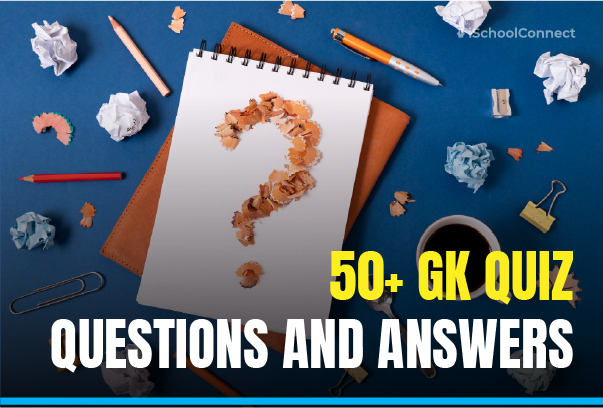Table of Contents
- Quiz overview
- Key Advantages of Quizzes
- Quizzes are entertaining.
- Quizzes boost self-esteem.
- Children’s quizzes can help with planning and tracking progress.
- Quizzes are simple to differentiate while letting all pupils participate.
- Quizzes are ideal for plenary sessions.
- Quizzes are excellent for summarizing a topic.
- Quizzes can help with tracking.
- Some Questions for Young Students
- Key takeaways
- FAQs
Quiz overview
With the advancement of technology, the old method of teaching students is becoming obsolete, and teachers must devise new ways of teaching and assisting students in passing examinations with a solid academic basis. Most educators, parents, or teachers want their students to do well in school. Let’s read about tp 15 quiz for students.
The many learning modes may stimulate students’ motivation to learn. Decades of studies have shown that periodic non-graded and low-stakes quizzes are necessary. Quizzing frequently improves learning and long-term memory, resulting in excellent exam performance.
Quizzes are now an interactive forum for students to learn knowledge and explore possibilities to achieve beyond academics rather than to be awarded prizes. Students can practice critical thinking and creative learning by taking practice quizzes. These tests incorporate gaming aspects into the learning process and provide students with immediate feedback on their weakest areas.
Key Advantages of Quizzes
Quizzes are entertaining.
They are simply enjoyable. We all know that when learning is lovely, we learn more effectively.
Quiz for students can provide teachers with just a few minutes of relief from our hours of marking. So, if we love it, why wouldn’t the kids we educate enjoy a little relaxing fun while they work?
Quizzes boost self-esteem.
Quizzes that are well-targeted and custom-made can increase self-esteem and confidence. When students can challenge themselves and achieve, their confidence grows.
Individual quizzes relieve the strain that an ‘exam’ can bring and allow youngsters to make privacy mistakes. Even when utilized in groups or pairs, the nature of a fun quiz can encourage youngsters who are less confident to make mistakes, especially if the examination allows them to retake it.
Children’s quizzes can help with planning and tracking progress.

Whether the quiz is pre-topic or mid-topic, it can genuinely assist you in seeing what students already know or have learned.
A questionnaire will thus educate your following steps of planning individually. Quizzes are an excellent tool to reinforce learning for students throughout a unit of work.
Quizzes are simple to differentiate while letting all pupils participate.
You can, for example, use the same design for a quiz and learning materials but with different questions. This is a subtle type of distinction. It can also assist you in providing the appropriate amount of challenge and determining how to best support each student in reaching their full potential.
Quizzes are ideal for plenary sessions.
A quiz or poll at the end of a lecture is a quick approach to see who needs help and where you may challenge them further.
Having a standard set of meta-cognitive and evaluative questions online that students can access via an iPad or computer in any lesson saves the teacher’s time.
Furthermore, youngsters will develop the habit of independently reflecting on their learning.
Quizzes are excellent for summarizing a topic.
A quiz at the end of a session is a fun method to see how much students have learned. It can also inform any additional follow-up that is required.
Quizzes can help with tracking.
Keeping track of students’ scores and responses demonstrates that the teacher continuously assesses and provides student feedback. This can also assist a teacher in monitoring and tracking progress.
Quizzes promote self-awareness and self-evaluation in students.
Students receive instant feedback on their responses when they take quizzes. And this can help them identify areas where they need to improve and highlight the progress they can be proud of.
It can help to promote a growth mindset and the attitude toward lifelong learning that you want to instill in your students.
Some Questions for Young Students

1. Which of the following fields receives the Nobel Prize?
- Economics, literature, and peace
- Physiology or Medicine
- Physics and Chemistry
- All of the Above
Answer is Option d is the
2. Garampani Sanctuary is in one of the following locations:
- Junagarh, Gujarat
- Kohima, Nagaland
- Diphu, Assam
- Gangtok, Sikkim
Option c is the correct answer to this question.
3. What is entomology study?
- Human Beings’ Behaviour
- Insects
- The history and origins of technical and scientific words
- The process by which rocks form
Option b is the correct answer to this question. It is a discipline of zoology that examines insects.
4. Galileo was an astronomer who
- developed the telescope
- discovered four satellites of Jupiter
- found that the movement of the pendulum produces a regular time measurement
- All the above.
The answer to this question is option b.
5. Sunlight exposure can boost your health for which the following reasons
- the infrared light kills bacteria in the body
- resistance power increases
- the pigment cells in the skin get stimulated and produce a healthy tan
- the ultraviolet rays convert skin oil into Vitamin D
The answer to this question is option d.
Key takeaways
- Quizzes can assist professors in having rich feedback dialogues with students.
- General knowledge is an essential aspect of school since it not only helps children learn but also makes them aware of what is going on across the world.
- They can help with differentiation by providing pre-teaching indicators, assessment for learning, rich feedback, self-assessment, and summative progress information.
Liked this blog? Read next: General knowledge quiz | Insider tips to crack these questions
FAQs
Q1. What is the purpose of a quiz?
Answer- A quiz is a quick and informal way to check pupil understanding. Quizzes are frequently used in North American higher education settings to quickly assess a student’s understanding of course material, providing teachers with insights about student progress and existing knowledge gaps.
Q2. What is the significance of a quiz?
Answer- Students can practice critical thinking and inventive learning by taking practice quizzes.
Q3. What are some examples of quiz categories?
Answer-
- Trivia about movies.
- Trivia about music.
- Television trivia.
- Trivia about the news and celebrities.
- Trivia about Toys and Games.
- Trivia & General Knowledge
- Slogans and Business Facts







